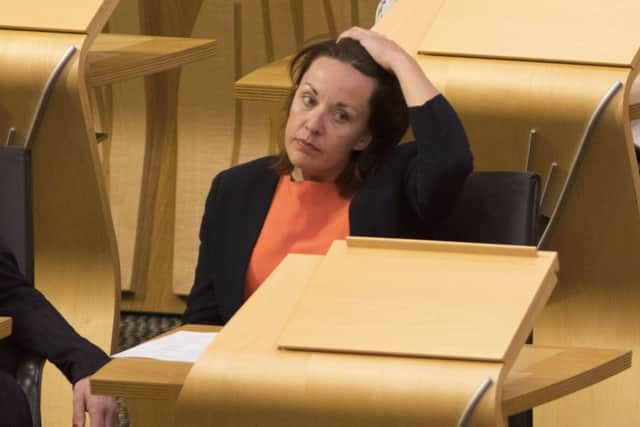Kezia Dugdale’s defamation case puts spotlight on power of new media bloggers
and live on Freeview channel 276
The Lothians MSP is facing a defamation action brought by Stuart Campbell, who runs the blog, after he claims she accused him of “homophobic” comments on social media.
Wings rose to prominence in the build-up to the 2014 referendum and has remained a trenchant critic of what he views as bias against the independence cause in the “mainstream” media.
Advertisement
Hide AdAdvertisement
Hide AdMedia experts say the case will throw into focus the growing influence of the new media in the political sphere.


Simon Pia, a lecturer in journalism at Edinburgh Napier University and former communications chief with Scottish Labour, said the rise of bloggers such as Wings is “indicative of the shift” in political debate.
“What he [Campbell] did is fill a vacuum that was felt among the independence movement and Nationalists… that there was nobody in the mainstream press that represented their position,” he said.
“He was very successful, he’s got a huge amount of followers, his crowdfunding is quite staggering, but there’s a political passion behind it.”
Advertisement
Hide AdAdvertisement
Hide AdA fundraising campaign undertaken by Wings raised £153,000 in March last year, according to the site. Dugdale, by contrast, had her legal costs support pulled by Labour.
The Daily Record, where she made her claims, has pledged support.
“That shows you the power of the new media,” Pia added.
“There’s an audience out there. If people don’t think mainstream newspapers are reflecting their views, people will go there.”
Recent years have seen the emergence of similar websites south of the border, such as the left-wing Canary and Novara, which emerged amid concerns over the media coverage that Jeremy Corbyn received.
Advertisement
Hide AdAdvertisement
Hide AdProfessor Alistair Duff, who specialises in new media at Napier’s School of Arts and Creative Industries, has carried out research into new media and says they have brought a “punk energy” to the political debate.
But this comes alongside concerns about the impact on “rational, critical discussion” in the public sphere.
He added: “There should be reasoned discourse in the political and public sphere.
“I think that e-pundits have sometimes, like punk did to music, brought a great, new energy and revived democratic politics.
Advertisement
Hide AdAdvertisement
Hide Ad“But it’s also brought as punk did, a somewhat intemperate tone.”
And while some commentators have labelled the proliferation of bloggers as the fifth estate, Duff says this emerging generation of political “e-pundits” are dependent on the fourth estate – newspapers – for the discourse that they feed off.
“They’re dependent on the fourth estate – although they’re derogatory often about the fourth estate and dismissive of it – for environment, information and impact.”
